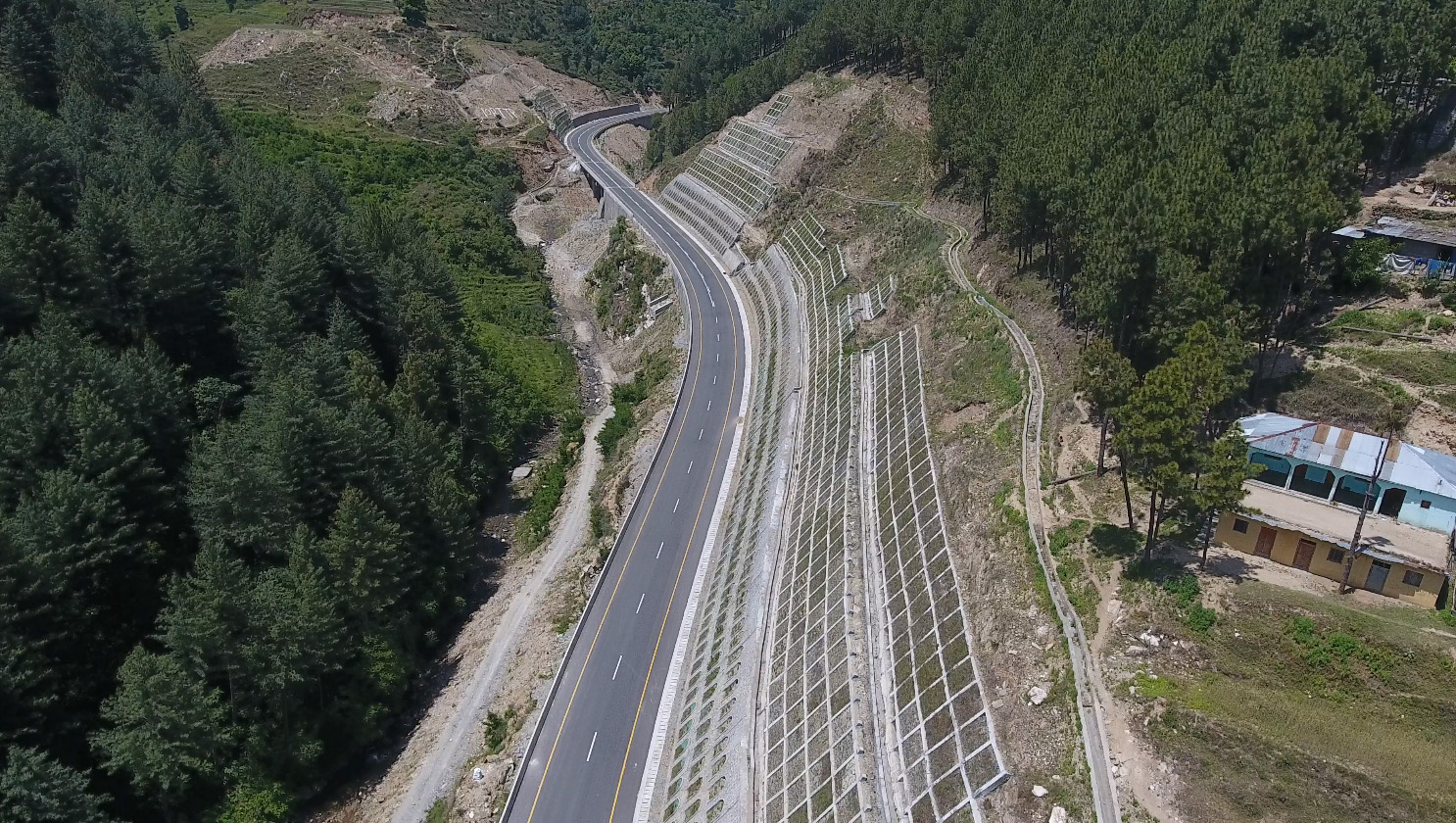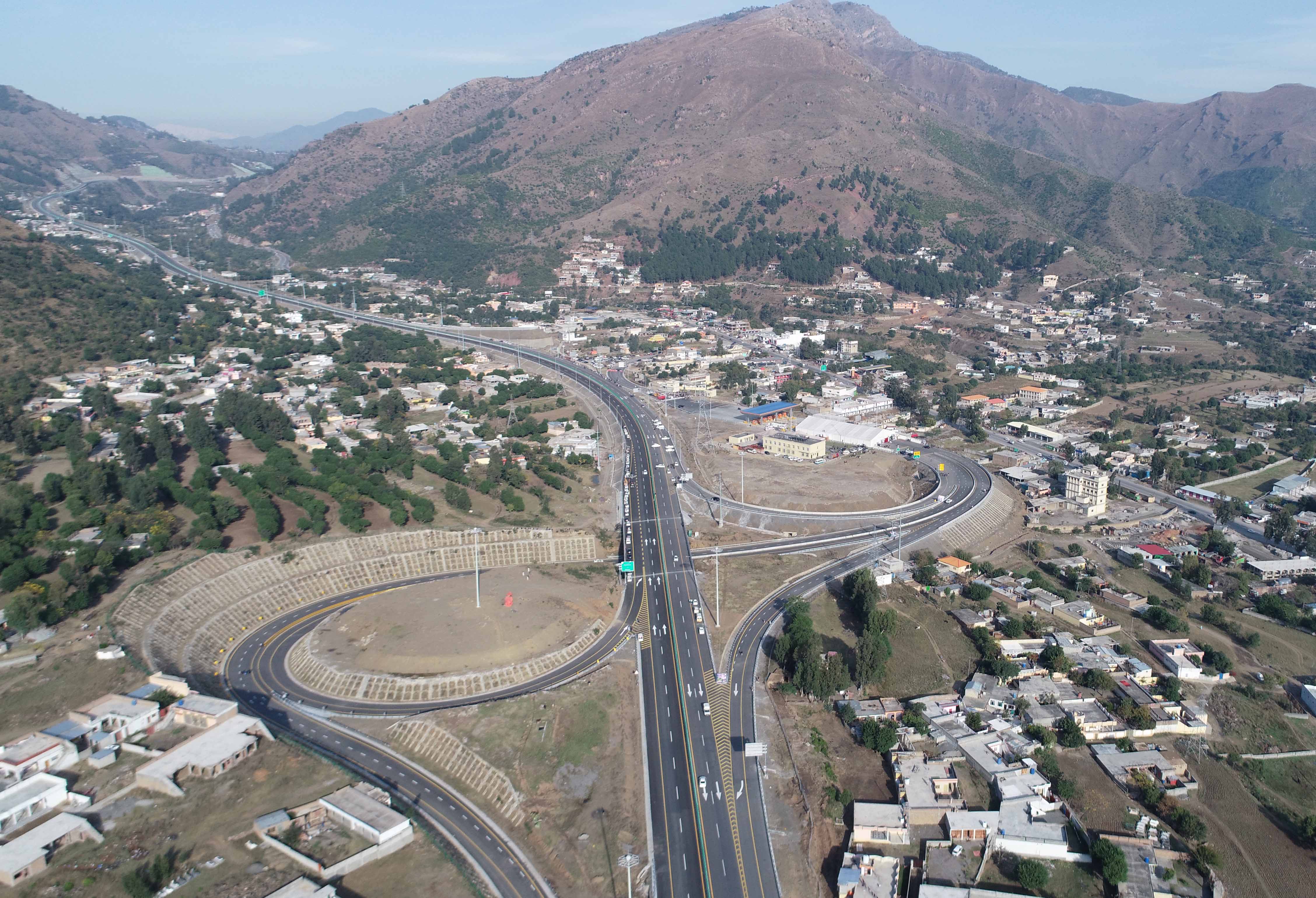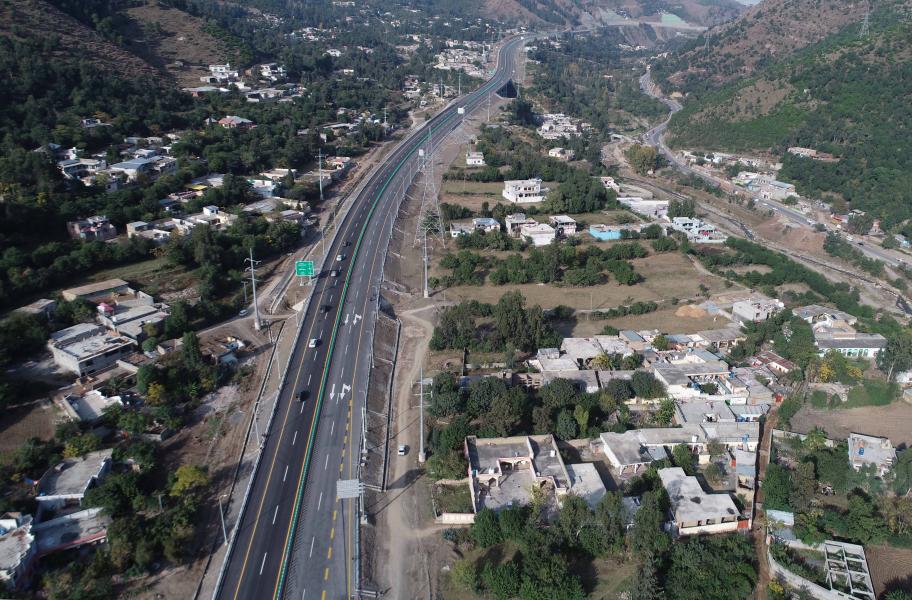
Kathmandu, Aug. 23:
Source: Xinhua|
— “The new road has been built in the shortest possible time of four years and has been playing a vital role in making life easier and bringing benefits to the people of Pakistan,” Pakistani Israr said.
— The implementation of the road project also created job opportunities for more local people.
ISLAMABAD, Aug. 21 (Xinhua) — Making a living on transporting construction materials, 20-year-old Pakistani Israr was delighted to see the opening of a brand-new road in the country’s northwest Khyber Pakhtunkhwa province, signaling a boost to his career.
The road has substantially shortened his travel time from Attock in Pakistan’s eastern Punjab Province to northern Gilgit, meaning he can now earn more money.
As an early project of the China-Pakistan Economic Corridor (CPEC), the 118-km-long road from Havelian to Thakot was constructed by the China Road and Bridge Corporation under the Karakoram Highway (KKH) Phase Two project, which consists of the expressway section from Havelian to Mansehra and the secondary road section from Mansehra to Thakot.
LEADING TO PROSPERITY
It used to be a 5.5-hour drive from Havelian to Thakot, but it now takes less than two hours, which means a lot for the thriving of trade activities, said Wang Benqian, general manager of the KKH Phase Two project.
Completely opened to traffic just weeks ago, the road has already been seeing a number of vehicles coming and going, including buses, passenger vans, and trucks loaded with construction materials, animals and fruit.
“The new road has been built in the shortest possible time of four years and has been playing a vital role in making life easier and bringing benefits to the people of Pakistan,” Israr told Xinhua.
“The fuel consumption and maintenance costs of my vehicle have been largely reduced. We have endured the pain in the past when there was no such road, but now, traveling has become smooth, fast and pleasant,” he added.
At a roadside fruit stall near his village of Lammi in Mansehra, 21-year-old college student Ehtisham sells apricots and peaches to travelers. Due to the COVID-19 outbreak, the Pakistani government closed all educational institutes in the country, including Ehtisham’s college in Abbottabad, located between Havelian and Mansehra.
“I was free at home. More people are coming because of the new road, so I decided to start this fruit business to help my family and also provide convenience for the travelers,” Ehtisham said.

“I bought these fruits from a market in Mansehra, and used a vehicle to transport them here. The new road is excellent, very smooth, and no fruit got damaged during the trip,” he added.
Ehtisham said the landscape in Pakistan’s North is very beautiful, with lush green mountains and valleys, and he believes that more tourists will go there thanks to the new road.
The college student used to live in a hostel in Abbottabad, but now he plans to commute between his home and the college on a daily basis after the college reopens as the new road has made the journey much shorter.
The implementation of the road project also created job opportunities for more local people. “The KKH Phase Two project employed over 10,000 local people at the peak of its construction and also trained a large amount of road-building professionals for Pakistan,” Wand said.
RISING TO THE CHALLENGE
According to Wang, the construction of the new road from Mansehra to Thakot formally commenced in September 2016, while the 39-km-long four-lane expressway section was inaugurated in November 2019, and the 79-km-long two-lane secondary road section was inaugurated in July this year.
Along the way, the complex geological conditions and topography of Pakistan’s mountainous northern region brought great challenges and difficulties to the construction of subgrade, tunnels and bridges.
“The areas along the KKH are called the museum of geohazards, because almost all kinds of geological disasters including earthquakes, landslides and rock-fall can be found here,” Wang said.
Instead of reconstructing and expanding the original road, the project’s goal was to build a higher-category new road, which made the implementation even more challenging.

What’s more, the unexpected pandemic brought further trouble. Wang said the project team implemented closed-off management in all project camps to cut off the transmission route of the virus.
Though both the Chinese and Pakistani employees found themselves under a tighter schedule and facing more psychological pressure due to the pandemic, a new road measuring 10.7 km that snakes its way through mountains and valleys with six tunnels and 105 bridges had been put into use, said Wang, adding that “not a single confirmed COVID-19 case had been found among the project’s personnel so far.”
FRIENDSHIP ACROSS KARAKORAM
In Thakot, there is a bridge across the Indus River named Youyi Bridge, with “youyi” meaning “friendship” in Chinese.
On a monument next to the bridge, it is said that the bridge’s name is “in memory of those valiant Chinese and Pakistani engineers and workmen who sacrificed their lives during the construction of KKH (1966-1978) and (to) commemorate the friendship between Pakistan and China.”
The COVID-19 outbreak ruined the plans of many Chinese personnel to return to China for vacation and enjoy family reunions. Among them was 33-year-old Ma Wei, manager of the secondary road section of the KKH Phase Two project, who came to Pakistan in 2016 soon after he got married.
“The time I have spent with my family has been less than half a year in the past four years. My wife planned to come to Pakistan from Beijing during (Chinese New Year) this year, and after that, we would go back to China together. We were even considering having a baby. But all of this had to be postponed due to COVID-19,” Ma told Xinhua.

However, Ma said the “Karakoram spirit” provided him encouragement. “The difficulties that the Chinese and Pakistani workmen faced when they built the KKH in the last century are unimaginable, and hundreds of them sacrificed their lives.”
For the common target of building this road, many of the Pakistani personnel chose to stay with the Chinese team and continue to work during the closed-off management period.
That “made me feel the uniqueness of the China-Pakistan friendship. When such a beautiful road was put into use, no matter what it has cost us, we feel everything is worthwhile,” he added.
Because of the closed-off management measures, the last time that Yousuf Karim, who joined the project at the end of 2015 as an interpreter, went home was in February.
“Closing off the camps is necessary and effective to prevent COVID-19. We may get infected on the way back, so not going home is actually to protect my family,” the 35-year-old father of two boys told Xinhua.
“Compared to our Chinese friends who left their families to come here to help us build this road and could not go back for a long time, what we endured is not a big deal,” he added.
“If there is no road, it is meaningless to talk about development … When China achieves development, it is also trying to help other countries, including Pakistan, to develop together,” he said.
Despite the spread of the coronavirus, none of the CPEC projects under construction and in operation have become stuck in stagnation, Chinese Ambassador to Pakistan Yao Jing said.
The implementation of the projects, the diplomat added, will create job opportunities, and greatly help Pakistan mitigate the negative impact of the disease and bolster its economy.


Comment